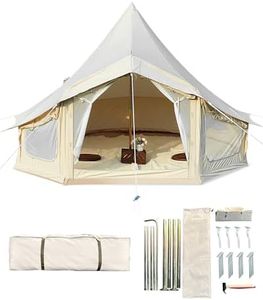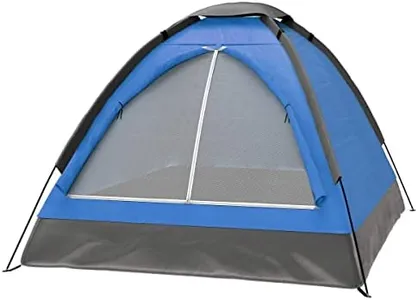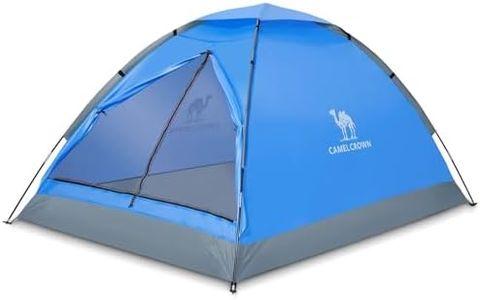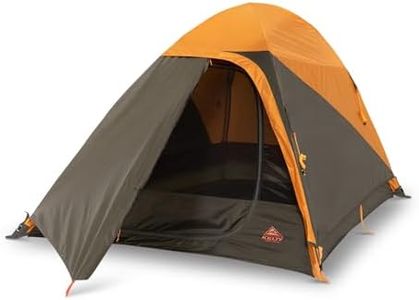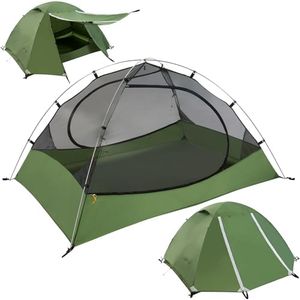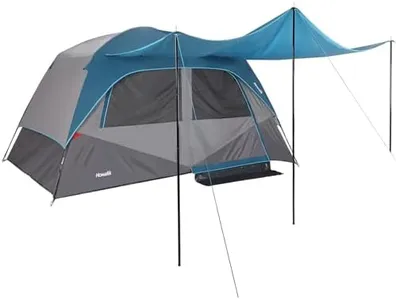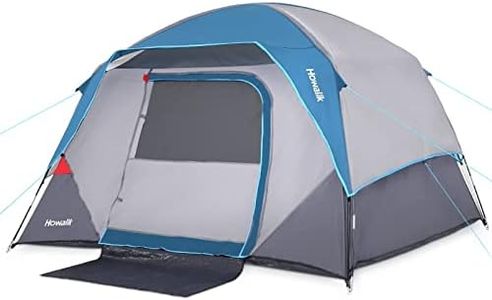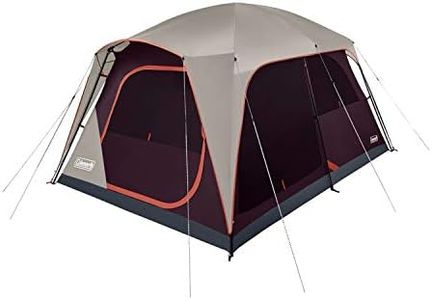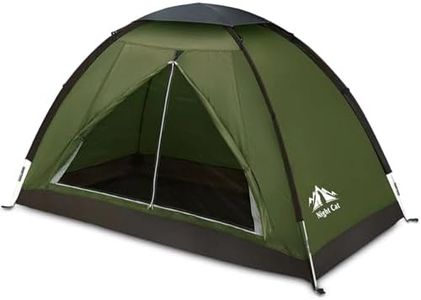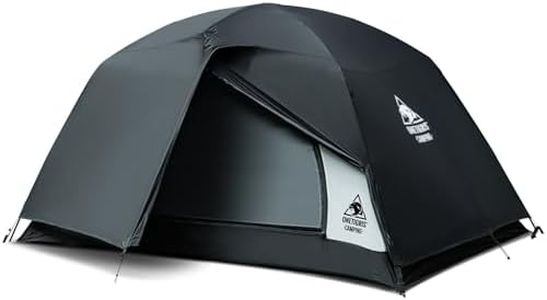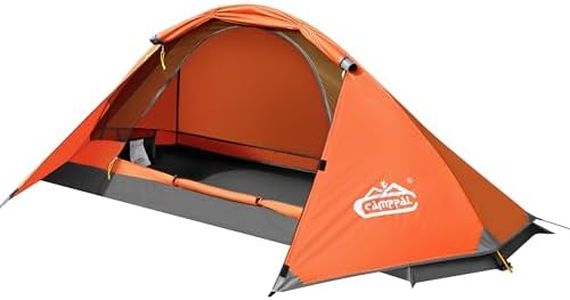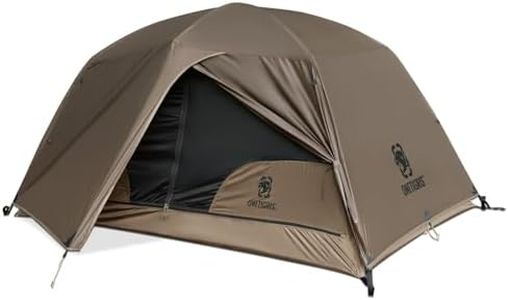10 Best Backpacking Tents 2025 in the United States
Our technology thoroughly searches through the online shopping world, reviewing hundreds of sites. We then process and analyze this information, updating in real-time to bring you the latest top-rated products. This way, you always get the best and most current options available.

Our Top Picks
Winner
2 Person Camping Tent with Rain Fly and Carrying Bag - Lightweight Outdoor Tent for Backpacking, Hiking, or Beach Use by Wakeman Outdoors (Blue)
Most important from
17183 reviews
The Wakeman Outdoors 2 Person Camping Tent with Rain Fly and Carrying Bag is a lightweight option, making it suitable for backpacking, hiking, and other outdoor activities. Weighing just 3.1 pounds, it's easy to carry along on your adventures. Designed to accommodate two people, this tent is ideal for couples or friends looking to share a space without feeling cramped. The dome shape and fiberglass poles ensure a quick and straightforward setup, even for beginners, and the included carrying bag adds convenience during transport and storage.
Constructed from 190T polyester, the tent provides decent durability and water resistance, although the water resistance level of 190 mm may not be sufficient in heavy rain conditions. The tent also includes a removable rain fly for added protection against unexpected weather, and the ventilation window promotes airflow to keep the interior comfortable. While the dual-layer door enhances privacy and airflow control, the single interior pocket may offer limited storage options for your gear. The packed size of 23 x 4 inches ensures it won't take up too much room in your backpack.
This tent is best suited for three-season use, making it versatile for spring, summer, and fall trips. However, users should be aware that its durability and water resistance may not be adequate for extreme weather conditions. The Wakeman Outdoors 2 Person Camping Tent is a practical and budget-friendly option for casual campers and hikers looking for a lightweight, easy-to-set-up tent for various outdoor activities.
Most important from
17183 reviews
Big Agnes Copper Spur HV UL Backpacking Tent, 2 Person (Olive Green)
Most important from
344 reviews
The Big Agnes Copper Spur HV UL is an ultralight backpacking tent designed for two people. Weighing only 3.02 pounds, it is ideal for backpackers who prioritize weight. This tent is built for 3-season use, meaning it can handle spring, summer, and fall conditions, but might not be suitable for harsh winter environments. With its proprietary ultralight nylon double rip-stop fabric, the tent offers a good balance of strength and weight, providing excellent tear and puncture resistance without adding unnecessary bulk.
The redesigned awning-style vestibules are a standout feature, offering expanded covered living space that is useful for weather protection and additional storage. The new setup mechanism, the TipLok Tent Buckle, simplifies the assembly process by combining multiple setup functions into one streamlined system, making it easier to pitch the tent quickly and securely. Ventilation is well-addressed with multiple access options through double zippers and two doors, which helps minimize condensation buildup inside the tent.
While the tent provides good interior space for two people, the floor area is 19 square feet, which might feel a bit tight for some users when storing gear inside. Additionally, the packed size is compact at 26 x 9 x 5 inches, making it easy to fit into a backpack. The Big Agnes Copper Spur HV UL is an excellent choice for backpackers who need a durable, lightweight, and easy-to-set-up tent for three-season use, but it may not be the best option for those needing extra space for gear or winter camping.
Most important from
344 reviews
Buying Guide for the Best Backpacking Tents
Choosing the right backpacking tent is crucial for a comfortable and enjoyable outdoor adventure. The right tent will protect you from the elements, provide a good night's sleep, and be easy to carry. When selecting a backpacking tent, consider factors such as weight, size, seasonality, and ease of setup. Understanding these key specifications will help you make an informed decision that best suits your needs and preferences.FAQ
Most Popular Categories Right Now
